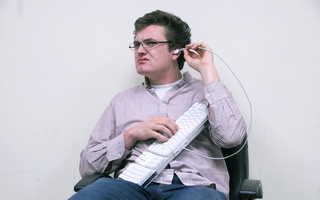Last week’s New York district court ruling on Google’s information plans to digitize every book ever published is important news here in Cambridge. The judge in the case, Denny Chin, ruled against Google’s 2008 settlement with the Author’s Guild and Association of American Publishers as a “de facto” violation of anti-trust law. The settlement had paved the way for the digitalization of some 15 million books. In ruling as he did, Chin has established a serious roadblock in Google’s lofty aims. Of course, the matter will likely now proceed on a national level, as Chin has advised that Congress consider the issue of a monopoly on digital information. Despite all these setbacks, however, Google remains keen to expand the number of books it has made accessible on the Internet without cost.
Harvard, too, is eager to expand the body of digital information. True, the ruling is less important at the moment to the University, which severed its ties with Google’s project in October 2009. In the meantime, Harvard professors—generally opposed to a quasi-joint venture with the internet’s corporate behemoth—have advocated a project of their own, setting up an online library known as the Digital Public Library of America in conjunction with other universities.
In our view, regardless of the convictions shared by defenders of Google and the DPLA, what is important here is that the information in question be digitized and made publicly available as quickly as possible. Given that this week’s ruling places many obstacles in Google’s path, it is time for Harvard to throw even more weight behind the DPLA project.
With the world’s largest library after that of the Library of Congress, Harvard occupies a key position to deliver lasting benefits to the world of online content. As an institution whose role has traditionally been defined by teaching and producing high-quality information, Harvard should to work with the entity that stands the best chance to deliver these goals. In that sense, the community should thus come to view the question of the DPLA vs. Google not as an ideological issue but rather in practical terms. In short: Which solution is more likely to succeed in sharing the most amount of information possible in the shortest possible timeframe?
After the recent ruling, that solution seems to be the DPLA.
As Google’s digital expansion efforts are under tremendous legal scrutiny, not to mention the scores of publishers, it hardly seems as though a Google-generated digitalization of Harvard’s vast collection is even a remote possibility. Having already turned its back on the partnership with the company, Harvard should now take this ruling as further validation of its own independent digitalization plans. Besides, it is futile to deny that problems could not arise from a situation that could ultimately lead to a monopoly over scholarship. While Google certainly has the money and the equipment to scan information fast, it might not be the worst thing for Harvard to chart its own course in content digitalization with other non-profit institutions.
Additionally, the question of copyright ownership and, fundamentally, whether Google is depriving publishers and authors of a fair deal seems important to keep in mind throughout the larger debate. In the rush to take advantage of the capabilities afforded by the information age, it is far too easy to marginalize the interests of producers and content copyright holders. The Internet has left authors and publishing houses in far less control over how their property is distributed. Harvard must remember its own function as a major producer of such information and work to secure the best interests of those who at the end of the day own the rights to the content to be transferred online.
The accessibility of information is vital to education, to academia, and to the intellectual process in general. Harvard is right to strive toward making its own information widely accessible. Even though the DPLA project appears confined to infancy, we hope that the current legal issues Google faces do not deter the library’s administration but instead spur them on, and, in doing so, encourage universities and institutions everywhere to embark on initiatives of their own.
The digital age is here to stay, and content digitalization is here to grow. Harvard had better not miss out on education’s next race to the finishing line.
Read more in Opinion
Free to Work for FreeRecommended Articles
-
Putting Google in PerspectiveSince Google has become the standard provider for so many services, we need to remind ourselves that other, often better choices do exist.
-
Don’t Be EvilAs a large and highly visible multinational corporation, Google has set an admirable example by risking financial loss in order to fulfill what it sees as its moral responsibilities.
-
 Exposed Online!
Exposed Online! -
Breach No MoreGoogle recruits the NSA
-
Keep Your Buzz to YourselfWhat’s the Buzz? Google’s newest product, an in-your-face status broadcasting service built onto Gmail that acts like a hybrid of Facebook and Twitter, was launched the day it was announced two weeks ago.
-
HBS Professor Slams Google’s MethodsHarvard Business School Assistant Professor Benjamin G. Edelman ’02, who this month published a study accusing Google of bias, says that the company is attempting to discredit him for his work.













